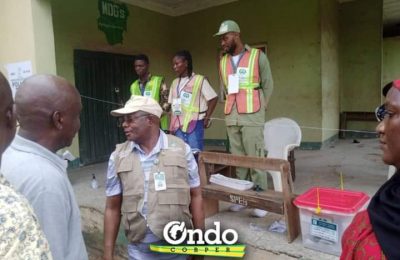Chief Executive Officer, National Institute for Culture Orientation, Otunba Biodun Ajiboye has stated that Nigeria cannot afford losing its two heritage sites to climate change.
Tribune Online reports that the two Heritage Sites are Sukur cultural landscape in Adamawa State inscribed in November, 1999 and the Osun Osogbo sacred Groove in July, 2005.
The CEO stated this at a public lecture titled: Nigeria’s heritage in time of climate change, held yesterday at the University of Lagos.

Biodun noted that sacred places could be affected through complete displacement of substantial population of a cultural space to complete re-location to new sites.
He explained that such removes oral tradition as well as damaging traditional vocations and craftsmanship like fishing.
“We cannot afford to expect that the two Heritage sites we have on the World Heritage list is put in danger.
“Under the 1972 convention, Nigeria has two world Heritage sites namely: the Sukur cultural landscape in Adamawa State inscribed in November, 1999 and the Osun Osogbo sacred Groove in July, 2005.

“Concerning the 2003 convention representative heritage of humanity, the threat at climate change affects the element in more diverse ways.
“Floods and other natural disasters can affect the sacred places such as the palaces of the kings, shrines, monument and relics as well as a whole human settlement through complete displacement of substantial population of a cultural space to complete re-location to new sites.
“This up-roots their total oral tradition including language as an expression extending to damagingthe traditional vocations and craftsmanship like fishing, net making, Boot making as a source of livelihood and entrepreneurship.” He said.
Meanwhile, The CEO advocated for the implementation of the World Cultural and Natural Convention of 1972 in order to immediately arrest effect of climate change on heritage.
He noted that the World Heritage Committee be created, world heritage list be established, including heritage list in danger and set up world heritage fund.
“As you are aware, that under 1972 convention, the function at the World Heritage Convention and the secretariat are: Define cultural and natural heritage; Create the world heritage committee; Establish the world heritage lists; Establish the world heritage list in danger and Set up the world heritage fund.
“It is therefore within the statutory jurisdiction of the convention to do so.” Biodun said.
In proposing ways of demystifying the effect of climate change on heritage, Another Speaker, Nkechi Adedeji noted that awareness of the benefit of protecting culture and heritage is very key.
She suggested educating people by or organising seminars and collaboration with tertiary institutions.
In her remarks, The Representative of Restoration Secretary for Legacy, Latifat Olajide touched on the challenges with the protection of listed buildings which includes: Greater emphasis on intangible heritage, and poor collaboration with the Physical Planning Authority.
According to Latifat, introduction of Heritage Managers at Local Govt Level, Paradigm shifts from preserving heritage buildings in isolation to putting them to adaptive use and the fact that heritage IMPACT should be included in Environmental Impact Assessment (EIAs).







